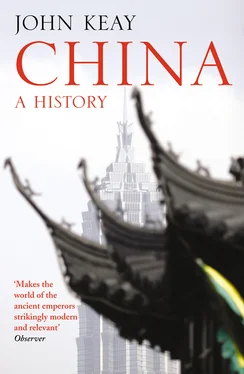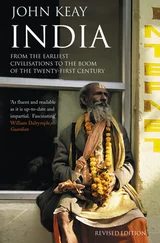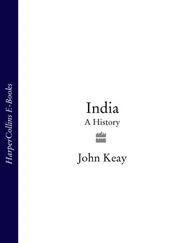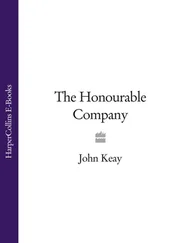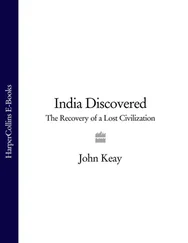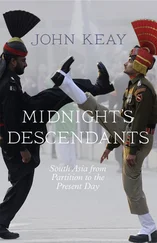The details would be enough to drown any tender narrative. An ambitious study recently contrasted this bellicose aggregation-into-empire of ancient China’s ‘states’ with the opposite tendency in early modern Europe – the rejection of unitary empire and the entrenchment of a multi-state system as a result of equally internecine competition. But whereas the study accepted a list of eighty-nine wars involving the European ‘Great Powers’ during the roughly four centuries prior to AD 1815, no less than 256 wars were individually identified for northern China’s ‘Great Powers’ during the roughly four centuries prior to 221 BC – and this after the exclusion of all purely civil conflicts and any of an external nature or involving nomadic peoples. 14
Happily many of these wars appear to have been brief and fairly bloodless. They were also subordinate, even incidental, to the far more complex game of political alliances and stratagems that constituted contemporary statecraft. Bribe and bluff turned the tables quite as often as warfare, the wasteful nature of which, together with its unpredictable outcome, made it a recourse of last resort. No strangers to the balance of power, the Chinese ‘states’ set lofty standards in realpolitik. Scruple-free statesmen would later turn to the ‘Spring and Autumn’ Annals for inspiration; Machiavelli might have scanned them with profit. As the Zuozhuan (‘Zuo’s Commentary’ on the often enigmatic ‘footprints’ of the annals themselves) makes clear, the heroes of the period were not halberd-wielding warriors and charioteers but strategists, schemers and honey-tongued spokesmen.
Nevertheless, a just-possible synchronism, plus the epic character of the Zuozhuan with its frequent battles, intrigues and debates, has invited comparison with the Homeric and Sanskrit epics. Gods are notable by their absence in the Chinese text; but counterparts for bluff Hector or lofty Priam of the Iliad put in an appearance, while the exploits of Chonger, a central character in the Zuozhuan , mirror those of Rama or the Pandavas in the Indian classics.
Chonger was the son of the ruler of Jin, a large state loyal to the Zhou which extended north from the Yellow River into Shanxi province. His chances of the succession were remote, however, his mother being a Rong (that is non-Xia or non-‘Chinese’) and his appearance being physical proof of this handicap; his ribs were said to be fused together and there was something odd about his ears. ‘Chonger’ literally means ‘double-eared’, a sobriquet presumably preferable to ‘single-eared’ but here taken to indicate some peculiarity, perhaps pendulous lobes. Sealing his fate by being implicated in a plot, in 655 BC the youthful Chonger fled into exile and so embarked on a nineteen-year saga of picaresque adventure.
Accompanied by a band of loyal and capable companions, Chonger first spent some years among the Di, another non-Xia people, and then wandered extensively throughout the Zhou states and south as far as the great state of Chu in the Yangzi basin. Useful contacts and insights were acquired and feats of statecraft performed. Also contracted were debts-to-be-repaid, scores-to-be-settled and brides-to-be-deserted – in equal measure. With a growing reputation for outspoken courage and with plentiful evidence of Heaven’s favour, the prodigal Chonger returned to his native Jin on the death of his ruling half-brother and duly succeeded him as Jin Wen Gong (‘Duke Wen of Jin’) in 636 BC.
A year later Jin’s forces restored the legitimate Zhou king after he had been temporarily ousted from his embattled enclave at Luoyang. Then in 634 BC they defeated an invading army from Chu at a place called Chengpu. It was the first battle in Chinese history that was recorded in sufficient detail for modern military historians to produce a plan of engagement showing rectangular troop concentrations and arrowed lines of advance. 15A hundred war chariots and a thousand foot-soldiers were captured for presentation to the Zhou king, who now feted the once outcast Chonger as the saviour of zhongguo (‘the central states’) and officially recognised him as ba , a title that may be rendered as ‘overlord’ or ‘protector of the realm’.
Terms like ba , gong and zhongguo pose a problem since they are conventionally translated into non-Chinese languages in a somewhat random fashion. Ba , for instance, is commonly rendered as ‘hegemon’, a Greek title awarded to one of the near-contemporary Hellenic city-states, usually Sparta or Athens, in recognition of its primacy and leadership. In China the ‘hegemony’ also changed hands; the ruler of Qi in Shandong had previously held it, and Jin would later be succeeded as ba b y Chu, Wu, Qin and others. But in its Chinese context, the term was meaningless without the legitimacy and overall authority, albeit nominal, of the Zhou. Accepting his appointment at the third time of asking – a deferential convention – the Jin ruler made this clear: ‘Chonger ventures to bow twice, touching his head to the ground, and respectfully accepts and publishes abroad these illustrious, enlightened and excellent commands of the [Zhou] Son of Heaven.’ 16
Lip-service to the Heavenly Mandate and to the idea of a single ruling lineage survived, and it set apart those who adhered to it – the so-called Xia (sometimes Hua-Xia) people – from peoples who did not, such as the Rong and the Di. In both the Greek and Chinese worlds a literate and increasingly urban society now shared a sense of superior distinction that transcended internal conflicts. The Greek states sublimated their differences at the sanctuary of Zeus at Olympia, where the first games were supposedly staged as early as 776 BC. Less famously, the Chinese states, while observing certain conventions in their cut-throat statecraft as if it too were a competitive sport, also held athletic games. Instituted by the up-and-coming state of Qin in the early ‘Warring States’ period, they included trials of strength, dancing, archery, chariot-racing and some sort of butting contest involving horns. 17
While the Greek ‘hegemon’ serves as a rendering of ba , it is the ‘duc’ or ‘duke’ of the Romance languages which is invariably used to translate gong ; hence ‘Duke of Zhou’ for Zhou gong. In similar fashion ‘marquis’ is used for hou , ‘viscount’ for zi , and so on down through the rungs of the European aristocracy and the rankings of the Zhou elite to ‘esquire’ or ‘knight’ for shi . This convention was adopted because social and economic relationships in ancient China seemed to conform to what European historians understand by ‘feudalism’. But the analogy should not be taken too far. Zhou China and medieval Europe differed – by, at the crudest, some 8,000 kilometres (5,000 miles) and 1,500 years. Additionally Marxist historians, while insisting on a prior age of slavery under the Shang, have quibbled over just when the supposed transition to feudalism may have taken place; and others have doubted whether Chinese feudalism ever involved the contractual relationships that underpinned the European system (and led, for instance, to English barons demanding a Magna Carta). 18But the use of ‘duke’, ‘marquis’, etc. continues, and it has led to the introduction into Chinese history-writing of other exotic and perhaps misleading terms, such as ‘manorial lands’ and ‘seigneurial rights’.
Zhongguo is in another category. The word in Chinese consists of two characters, the zhong character clearly depicting ‘central’, ‘middle’ or ‘inner’, and the guo character meaning ‘state’ or ‘kingdom’. It is in fact the name by which the Chinese still know their country today, ‘China’ itself being as much an alien expression to the people who live there as, until the nineteenth century, ‘India’ was to the people who live there. As the geographical name of the modern republic, zhongguo (‘the Central State’ or ‘Central Country’) appears on politically correct maps, and its twin characters feature among the six officially used to express the phrase that is translated as ‘The People’s Republic of China’. The same two characters, however, were once no less correctly rendered as ‘the Middle Kingdom’; and before that they were used to indicate the ‘central states’ of the later Zhou (for guo , like all Chinese nouns, can be either singular or plural).
Читать дальше
